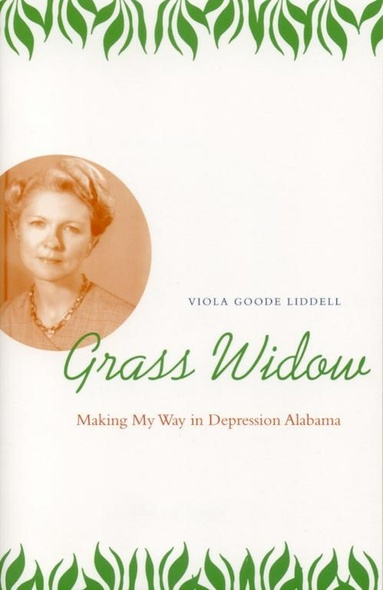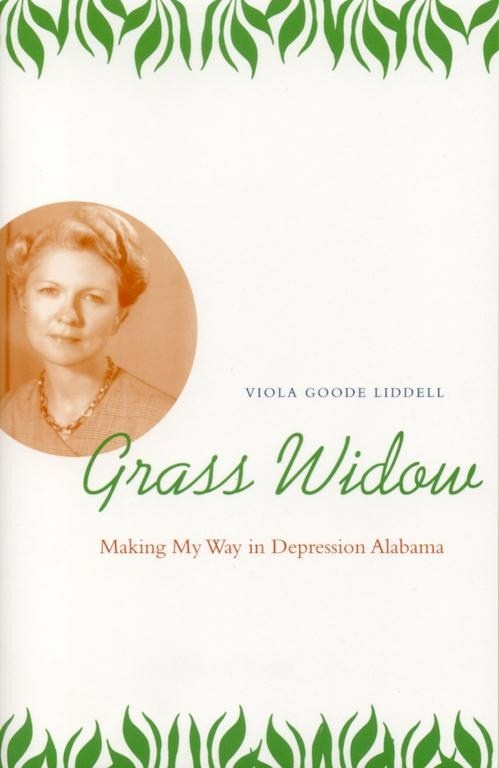Grass Widow
Making My Way in Depression Alabama
An engaging account of one woman’s overcoming the Depression and small town mores.
Viola Goode Liddell’s short memoir tells the story of her return to Alabama in search of a husband and a new life. Thirty years old and recently divorced, Liddell comes back to her home state—with her young son—determined to survive, during the depths of the Depression. Liddell narrates the obstacles she faces as a single mother in the 1930s Deep South with self-deprecating humor and a confessional tone that reveal both her intelligence and her unapologetic ambitions.
Unable to earn, borrow, or beg enough money to support herself and her child, Liddell uses her family connections to secure a teaching position in Camden, Alabama. Even though an older sister’s status within the community helps her land the job, Liddell is warned that she must be very careful as she navigates the tricky social terrain of small town life, particularly when it comes to men. A commentary on the plight of women of the time is woven into the narrative as Liddell recounts her experience of being refused a loan at the local bank by her own brother-in-law.
Despite all the restrictions on her behavior and the crushing reality that she has become "the biggest nuisance in the family" because of her past, Liddell cheerfully and successfully builds a new life of respectability and hope.
[With] twinkling humor, sharp insight, welcome forthrightness, telling allusiveness . . . Grass Widow is a well-told, high-spirited, but well-tempered story. . . . Affectingly personal, [it] is also a valuable document of and for cultural history.'--Bert Hitchcock, coeditor of American Short Stories (7th edition).
A great read.'--Philip Beidler, editor of Many Voices, Many Rooms: A New Anthology of Alabama Writers






